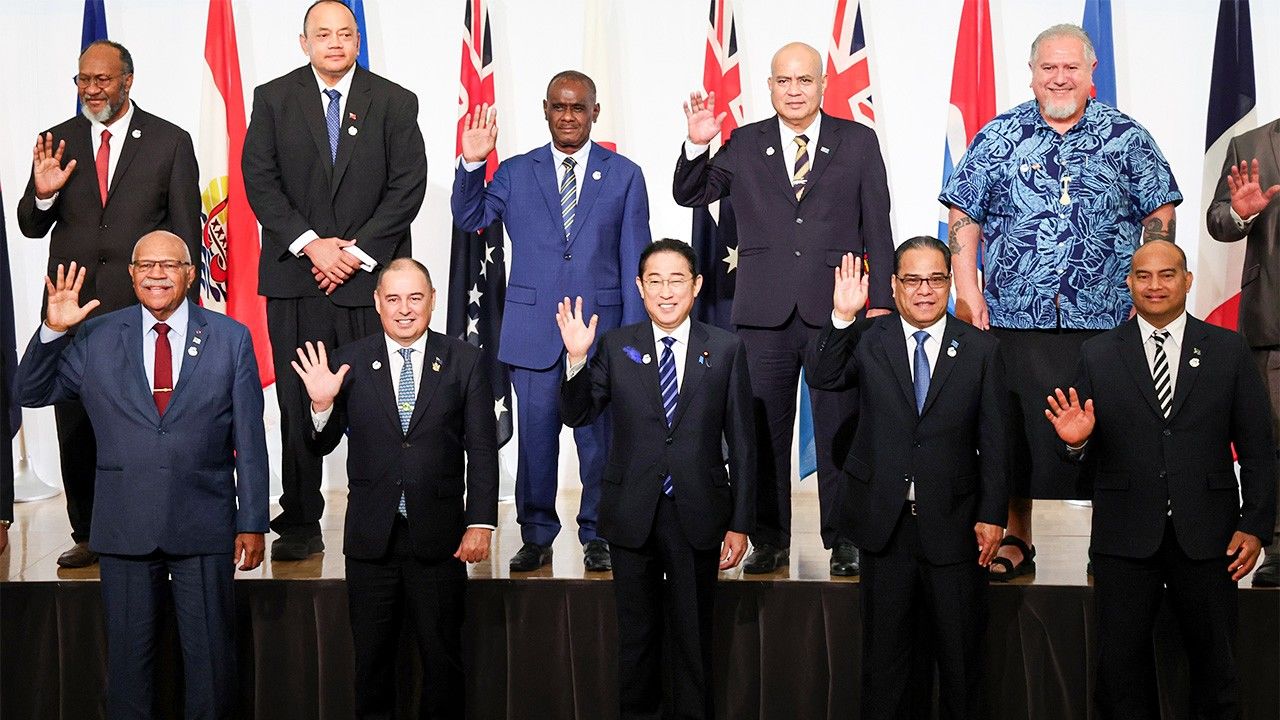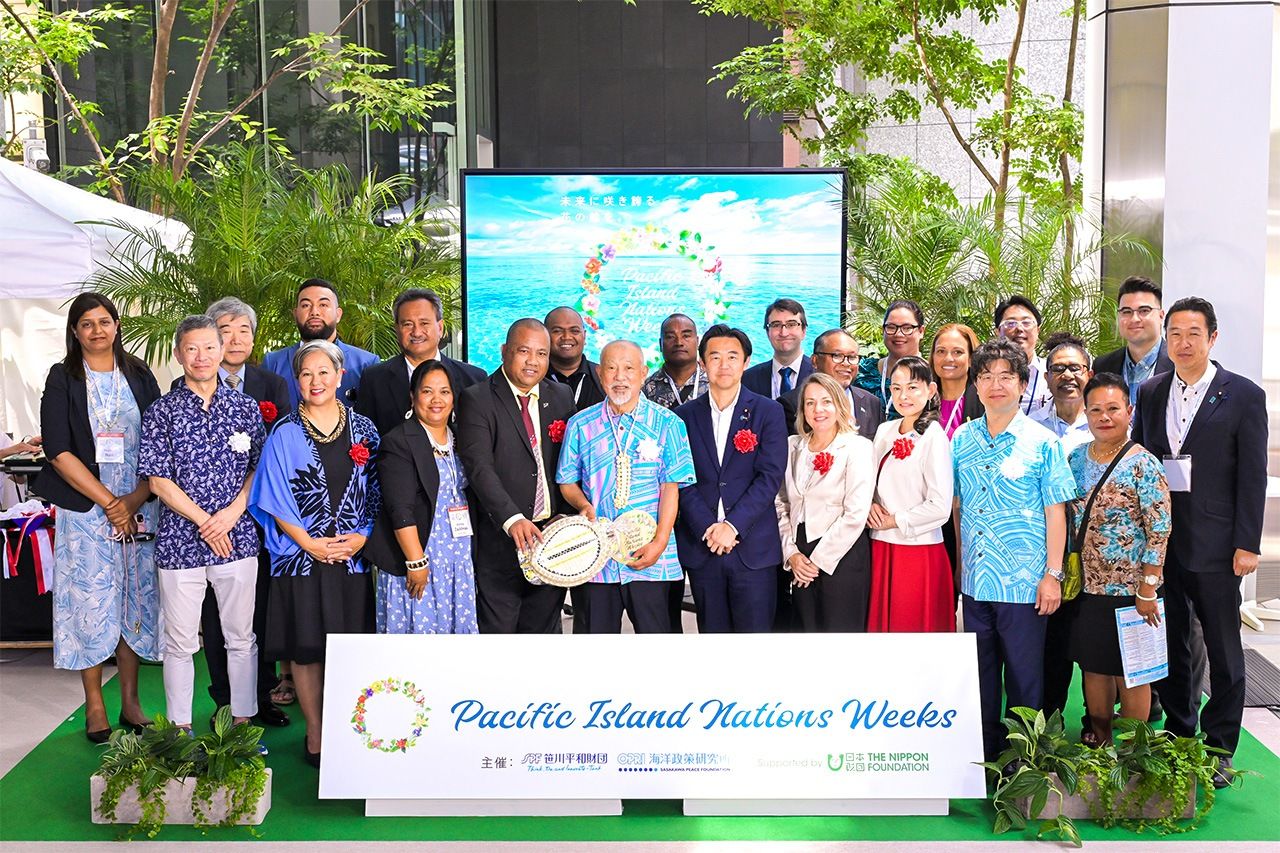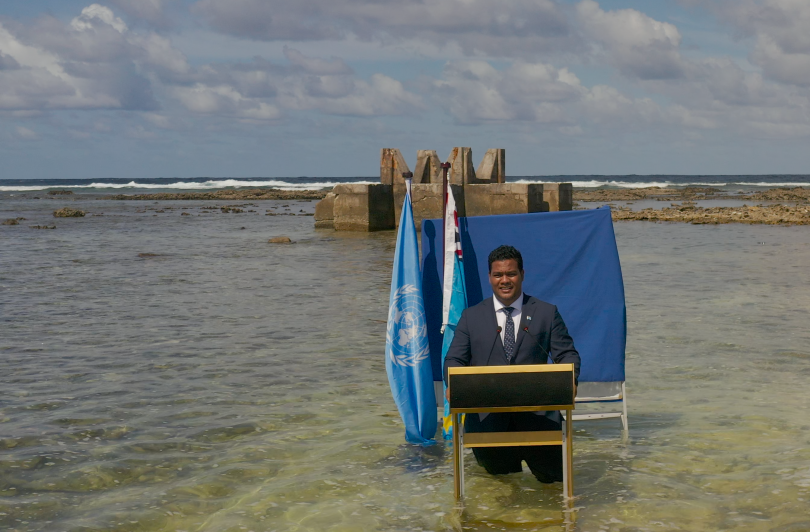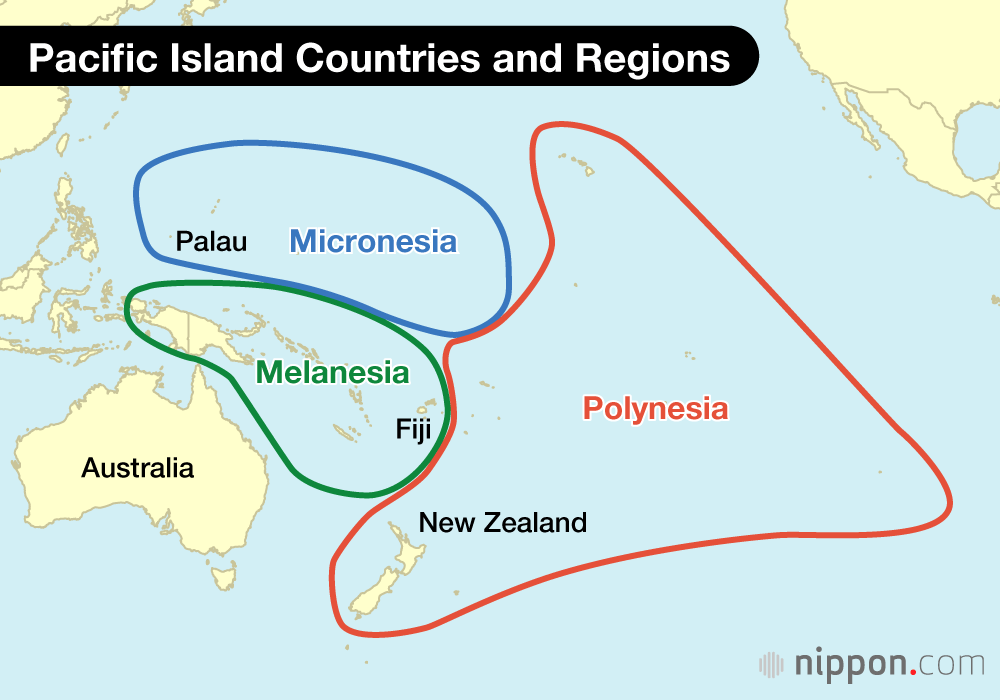
PALM10 Demonstrates its Increasing Strategic Importance
Politics World- English
- 日本語
- 简体字
- 繁體字
- Français
- Español
- العربية
- Русский
Nuclear Issues a Catalyst for Engagement
The Pacific Islands Leaders Meeting (PALM) is held every three years as a forum for Japan to enhance cooperative relations with the 18 members of the Pacific Island Forum. As such, PALM is comprised of 14 independent countries scattered across the three Pacific regions of Micronesia, Melanesia, and Polynesia, as well as two French territories, Australia, and New Zealand—in addition to Japan.
Before World War II, Japan had already established strong historical and interpersonal ties with the region. This included the establishment of the Territorial Government of the South Seas (Nan’yō-chō) in Palau to govern the Micronesia region. Following the war, Pacific Island nations served as sources of fishing resources, such as tuna and bonito, for a growing Japan. Japan also sought to take advantage of the potential role these countries could play as supporters of Japan in international conferences and in the international community.
However, initial engagement between Japan and a regionwide political institution representing the Pacific was characterized by tension. At the 1981 PIF, there were strong protests against Japan’s plan to discharge low-level radioactive waste into the Pacific Ocean. Postwar, the Pacific region had served as a nuclear testing site for the United States, Britain, and France. The PIF itself was established in response to French nuclear testing in 1971. Therefore, issues relating to nuclear weapons and waste were—and remain—highly sensitive for Pacific nations.
Following these protests, Japanese Prime Minister Nakasone Yasuhiro visited Fiji in 1985 and announced a stop to the radioactive waste discharge plan. In 1987, Minister for Foreign Affairs Kuranari Tadashi also visited Fiji and announced five principles of cooperation between Japan and the Pacific. Later known as the “Kuranari Doctrine,” Japan’s relations with the Pacific were to be based on “respect for independence and autonomy” and “support for regional cooperation,” including support for political stability, economic cooperation, and interpersonal exchanges. To build on this positive development, the Sasakawa Peace Foundation organized Japan’s first-ever Pacific Islands Conference in Tokyo in 1988, which became a catalyst for PALM1, the first Pacific Island Leaders Meeting, convened in 1997.
A Qualitative Improvement in Relations
Reflecting on the history of PALM meetings, we can divide it into three distinct periods. The first period, encompassing the first three meetings from 1997 to 2003, focused on fostering mutual understanding and trust through dialogue. Held in Japan, these meeting were essential for institutionalizing Japan-PIF relations.
However, the second period, comprising the next three meetings held from 2006 to 2012, saw the format stagnate as it became less appealing for Pacific Island nations. Many leaders began to question why they were being summoned to Japan every three years for a formal recounting of Japan’s aid provision to the region. This change in outlook also reflected the more assertive and independent foreign policy adopted by Pacific nations after years of dependence on former colonial powers such as the United States, Australia, and New Zealand.
In response to this inertia, a qualitative change in the tenor of PALM meetings emerged in the third period, beginning with PALM7 in 2015. Held during the second administration of Prime Minister Abe Shinzō, the main focus was to engage with Pacific nations more proactively on policy issues and to win acceptance of Japan’s “Free and Open Indo-Pacific” vision. From PALM8 in 2018, Japan’s emphasis on FOIP and its incorporation into PALM joint declarations established Japan as a supporter of the rule of law in the region and positioned this principle as the bedrock of regional and international relationships.
While PALM9 was held online due to the COVID-19 pandemic, it nevertheless represented an important milestone in Japan-Pacific relations. In July 2021, Prime Minister Suga Yoshihide presented to PALM9 attendees the Pacific Bond (Kizuna) policy, a three-year “Joint Action Plan” focused on the five priority areas of COVID-19 response and recovery, sustainable oceans based on the rule of law, climate change and disaster resilience, sustainable and resilient economic development, and people-to-people exchanges and human resource development.
This represented PALM breaking out of its rut and becoming a forum for substantive action.
Nevertheless, the stagnation of interpersonal exchange due to the COVID-19 pandemic has naturally complicated diplomacy. Furthermore, the April 2021 announcement of a plan to release ALPS-treated water from the Fukushima Daiichi Nuclear Power Plant into the Pacific Ocean without prior consultation with Pacific nations cast a shadow over PALM9 itself. It was also reminiscent of the 1981 plan to dump low-level radioactive waste into the Pacific. While the concern over Japan’s plan may not have been based on scientific evidence of harm, the impact of local media reports contributed to a growing sense of distrust toward Japan among the Pacific nations.
“Pacific Island Nations Weeks” Activities
Therefore, the central theme of PALM 10 was the restoration of trust. The first face-to-face summit meeting in six years, PALM10 offered an important opportunity to build a multilayered relationship with a view to an even stronger relationship in the future.
In conjunction with PALM10, the Sasakawa Peace Foundation hosted “Pacific Island Nations Weeks” events between July 8 and July 19 at its Toranomon headquarters in Tokyo. More than 50 ministers, parliamentarians, and policy practitioners were invited from Pacific nations to attend the events comprised of a mix of private-sector-led “track 2” and public-private “track 1.5” events. Discussions focused on themes such as maritime security, law enforcement in exclusive economic zones, sustainable tourism, the protection of traditional culture, economic development, healthcare, water and sanitation, and the impact of rising sea levels due to climate change.
In addition, the leaders of Palau, the Marshall Islands, Tuvalu, Fiji, Niue and French Polynesia all gave keynote speeches. Fiji’s Prime Minister, Sitiveni Rabuka, introduced his own country’s vision of an “Ocean of Peace” where Fiji plays an important role in soothing regional and global tensions. With the cooperation of Mie Prefecture, a traditional Palauan canoe was displayed in the entrance hall of the building as an emblem of Palau-Japan friendship, adding color to the event along with the sale of local products and cultural displays.

“Pacific Island Nations Weeks” participants. (Courtesy Shiozawa Hideyuki)
Japan and the PIF as “Firm Partners”
One of the things standing out in the outcomes of PALM10 is the commitment made by Japan and the Pacific Island countries to take relations to a new level and tackle issues of common concern. Looking at the PALM10 Leaders’ Declaration, are more areas of agreement between Japan and the PIF than in past declarations. This is largely due to Japan’s alignment with PIF leaders on the 2050 Strategy for the Blue Pacific Continent and its seven areas of priority cooperation.
The supplementary Joint Action Plan also designated Japan and the PIF as “PALM Partners,” a symbolic acknowledgement of the enhanced strategic importance of the relationship. Furthermore, the Action Plan includes a notable commitment by Tokyo to strengthen defense exchanges through port calls in the Pacific by Japan Self Defense Force aircraft and vessels, in addition to expected actions focused on economic development, climate change, and disaster mitigation. It also notes the need to “reinforce capacity for maritime security and maritime safety” through exchanges with the Japan Coast Guard and improving the maritime domain awareness of Pacific nations. JICA and Japan’s Official Security Assistance framework will also be used to strengthen the maritime security of the “PALM Partners.” This demonstrates a desire to go beyond diplomatic platitudes around upholding a “rule-based international order” to concrete implementation of this goal throughout the Pacific region.

Tuvalu’s Minister for Foreign Affairs Simon Kofe appealed at COP26 held in Glasgow, Scotland, in November 2021 for more active measures to be taken to combat climate change while knee-deep in the sea. (Courtesy of Simon Kofe).
In terms of the ALPS-treated water discharge that has been the thorn in the side of Japan-Pacific relations, the Joint Declaration noted Japan’s commitment to working with the International Atomic Energy Agency and “recognized the IAEA as the authority on nuclear safety,” concurring that actions should be based on “scientific evidence,” This language represents success for Japan, as it sought to use PALM10 to clear up misunderstandings surrounding the release of water from the Fukushima Daiichi Nuclear Power Station and restore trust in its diplomacy.
Overall, PALM10 was a step forward for Japan-Pacific relations, encapsulated by the final section of the Joint Declaration on the “way forward.” There, Japan and the PIF agreed to continue to be “firm partners for each other in achieving together their shared vision in the Pacific region toward 2050.”
(Originally published in Japanese. Banner photo: Prime Minister Kishida Fumio, fifth from right in the front row, poses for a commemorative photo with the leaders of the countries participating in the PALM10 summit, July 18, 2024, Minato, Tokyo. © Jiji Press.)

